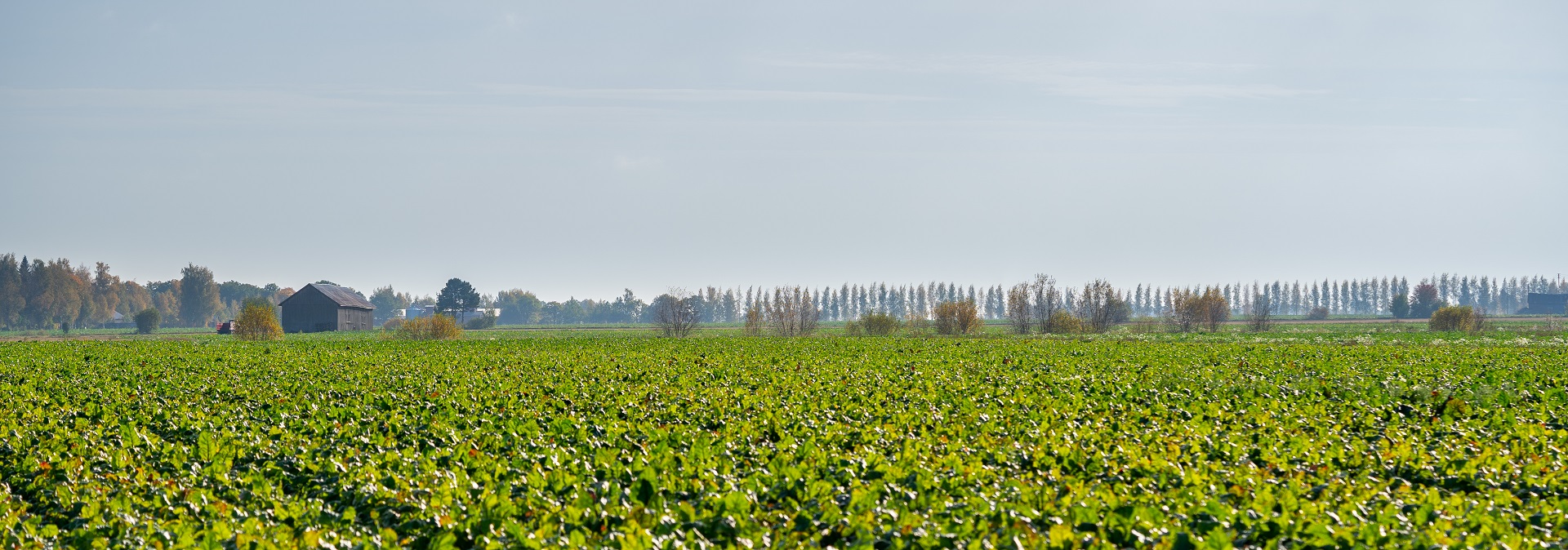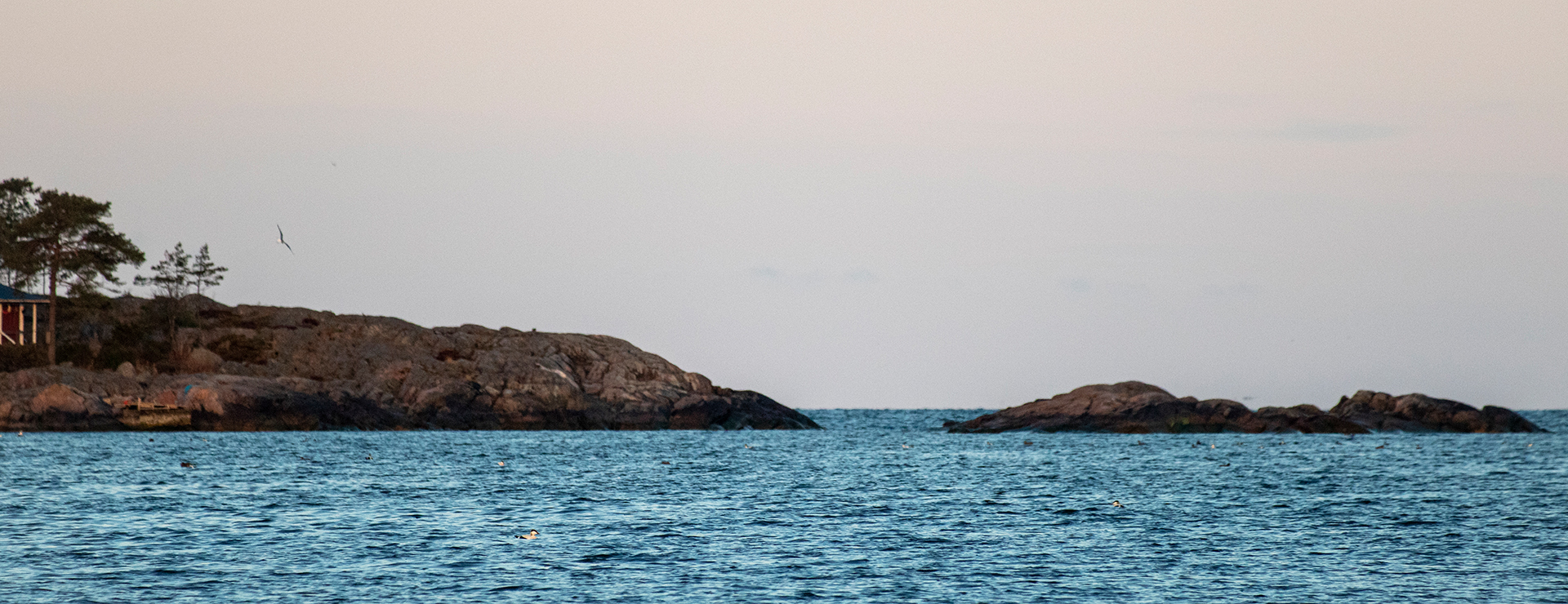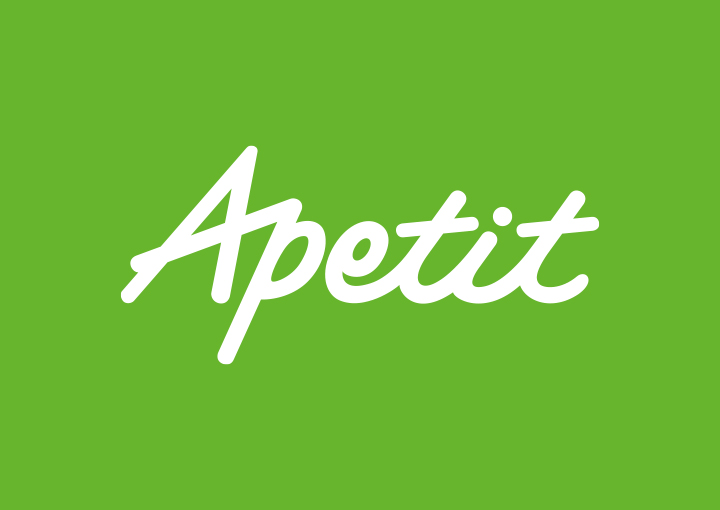How peas make their way from field to freezer
Apetit’s frozen peas are frozen within two hours of being shelled. This tight schedule is made possible by the pea fields being close to Apetit’s frozen food production facility in Säkylä. In addition, the entire process is carefully timed.
When planning the harvesting of peas, the sowing of different pea varieties is taken into account to ensure uninterrupted harvesting of ripe peas in the summer. The entire summer harvest must not ripen at exactly the same time, so sowing is planned in accordance with the production plant’s freezing capacity. Ripening of the peas and the start of harvesting and shelling is monitored closely and precisely down to the hour.
UNIQUE IN FINLAND
To plan and predict the start of the pea harvest, Apetit uses Finland’s only tenderometer, an instrument for measuring the hardness of peas. Pea samples are collected from all the plots, and the timing of harvesting is predicted with the help of tenderometer readings.
The pea harvesters used by Apetit are also unique in Finland. Manufactured by the UK-based company PMC, they weigh a whopping 25 tonnes each. Apetit owns three pea harvesters, with the newest one having been purchased in 2012. Apetit bought its first self-propelled pea harvester in 1979.
HARVESTERS SEPARATE PEAS FROM THEIR PODS
The speed at which the harvester moves during shelling is important, as the speed determines the quantity of pea mass and the speed of the threshing drum. The drum and the beaters inside it spin the stalks, opening the pods and moving the peas to the harvester’s hopper. The peas are then transferred to tractors and lorries for transportation to Säkylä for freezing.
QUICK AND GENTLE FREEZING
Thanks to the detailed harvesting schedule and short distances, the peas go from field to freezer in two hours. This ensures the superior flavour and texture of Finnish frozen peas, and creates a taste of summer in the midst of winter.
Gentle blanching and quick freezing in an air blast freezer ensure that the peas have a long shelf life and high nutritional content. The facility produces 10 tonnes of frozen peas per hour. Taking the washing of the production line into account, the daily pea production capacity is 200 tonnes.
OUR PEAS ARE RESPONSIBLY GROWN
All our pea growers are committed to Apetit’s responsible growing practices, which are based on integrating several different perspectives on improving cultivation and vegetable quality as well as managing environmental impact. Under Apetit’s responsible growing practices, contract growers use appropriate vegetable-specific and plot-specific cultivation methods to prevent the proliferation of pests and weeds. They also improve crop yields and vegetable quality using methods that are as environmentally friendly as possible, and that cause minimal disturbance to the cultivation ecosystem.
Apetit’s range of frozen pea products was expanded in summer 2017 after the first organic crops were harvested.
Related articles

Good result for Apetit in CDP’s international climate assessment
Apetit Plc, press release, 7 December 2021 at 4:00 p.m. Apetit Group reached a B score for good environmental management in the evaluation of the global environmental organization CDP's Climate Change program. The Management score was given to Apetit after the company took part in a minimum version of the program. This was the first time Apetit participated in the CDP survey. “Sustainable food choices are at the core of Apetit’s goal-oriented climate work. For example, we are committed to cultivation development and to promotion of carbon farming in primary production, to focusing particularly on domestic vegetables and local fish, and to reduction of our direct CO2 emissions by 75 by 2025. We are glad to achieve the B score at disclosing the CDP at the first time”, says Sanna Väisänen, Director of Corporate Communications and Sustainability at Apetit. CDP's annual Climate Change assessment analyzes and collects company-specific information on climate change mitigation, identification of climate risks and opportunities, and emissions. CDP Score Report - Climate Change 2021 (pdf) For further information, please contact: Sanna Väisänen, Director, Corporate Communications and Sustainability, tel. +358 10 402 4041 Apetit is a food industry company firmly rooted in Finnish primary production. Our operations are based on a unique and sustainable value chain: we create well-being with vegetables by offering tasty food solutions that make daily life easier. We also produce high-quality vegetable oils and rapeseed expellers for feedstuff, and trade grain on the international markets. Apetit Plc’s shares are listed on Nasdaq Helsinki. In 2020, the Group’s net sales were EUR 293 million.

Apetit expands its Baltic Sea Commitment from fields to waterways
Apetit Plc, press release 3 December 2021 at 09:00 a.m.Apetit is expanding its Baltic Sea Commitment made to the Baltic Sea Action Group in 2019. The commitment, which is currently being updated, will expand from fields to waterways, thus also covering the development and expansion of the use of domestic local fish in the Apetit product range. “In practice, this means that Apetit’s product development will pay special attention to fish choices that promote the maintenance of the ecological balance of waterways and the reduction of nutrient load in waterways. At the same time, Apetit makes it possible for consumers to choose from a wide range of sustainable fish,” says Sanna Väisänen, Director of Corporate Communications and Sustainability at Apetit. The use of local fish benefits the waterways, as eutrophication is one of the main sources of harm to the well-being of our waterways. Eutrophication refers to the overgrowth of algae caused by excessive nutrients, such as nitrogen and phosphorus, which leads to, for example, turbidity, oxygen deficiency and a decrease in the diversity of living organisms. “We have invested heavily in the productisation of local fish, and therefore it was a natural choice for us to extend the Baltic Sea Commitment directly to waterways and products based on local fish. The positive effects will be reflected in both the Baltic Sea and inland waters,” Väisänen says. Apetit’s product family of local fish was born out of the desire to utilise the fish caught in Lake Pyhäjärvi in Säkylä as part of fish stock management. Today, the product family includes freshwater fish fingers and fish cakes, Särkisen fish balls and Baltic Sea fish fingers made from herring caught in the Baltic Sea, which were launched this autumn. “We are pleased that Apetit has selected local fish caught in the Baltic Sea as a raw material for familiar everyday products. We hope that local fish will permanently gain the appreciation they deserve on dinner tables,” says Michaela Ramm-Schmidt, Managing Director of BSAG. Focus on improving soil fertility Apetit’s commitment has previously focused on producing information that can be used in the contract farming of field vegetables, particularly when it comes to soil fertility improvement and carbon sequestration. These efforts are currently being put into practice in the ongoing projects at Apetit’s Räpi experimental farm. “The goals of the research projects include producing information and practices for improving soil fertility and water resource management as well as developing carbon farming, particularly in the cultivation of field vegetables,” says Väisänen. When training its contract growers, Apetit’s utilises the e-college for regenerative farming, which has been produced by BSAG with the help of a wide range of partners. “We are eagerly waiting for the results from the Räpi experimental farm, as scientific data on the regenerative methods of vegetable cultivation is still quite new and therefore very interesting,” says Ramm-Schmidt. Apetit will include the best cultivation practices identified in the research projects in its cultivation instructions for contract growers as well as provide all contract growers training in cultivation methods that will improve soil fertility and carbon sequestration. These methods are used to improve soil’s capacity to absorb water, nutrients and carbon. One of the goals is to ensure that the soil retains nutrients and supplies plants with them as efficiently as possible while preventing the nutrients from running off into waterways. For further information, please contact: Apetit Plc: Sanna Väisänen, Director, Corporate Communications and Sustainability, tel. +358 10 402 4041 BSAG: Irina Niinivaara, Corporate Relations Manager, tel. +358 40 664 1625 Apetit is a food industry company firmly rooted in Finnish primary production. Our operations are based on a unique and sustainable value chain: we create well-being with vegetables by offering tasty food solutions that make daily life easier. We also produce high-quality vegetable oils and rapeseed expellers for feedstuff, and trade grain on the international markets. Apetit Plc’s shares are listed on Nasdaq Helsinki. In 2020, the Group’s net sales were EUR 293 million.

Publishing of Apetit Plc’s Business Review for January-September 2021
Apetit Plc, Press release, on 22 October 2021 at 10:00 a.m.Apetit Plc will publish its Business Review for January-September 2021 on Friday 29 October 2021 at 8.30 a.m. A separate press conference in relation to the Business Review will not be arranged. Apetit Plc For further information, please contact: Sanna Väisänen, Director, Corporate Communications and Sustainability, tel. +358 10 402 4041 Apetit is a food industry company firmly rooted in Finnish primary production. Our operations are based on a unique and sustainable value chain: we create well-being with vegetables by offering tasty food solutions that make daily life easier. We also produce high-quality vegetable oils and rapeseed expellers for feeding stuff, and trade grain on the international markets. Apetit Plc's shares are listed on Nasdaq Helsinki. In 2020, Apetit Group's net sales were EUR 293 million.
 Share
Share Facebook
Facebook
 LinkedIn
LinkedIn
 Email
Email

